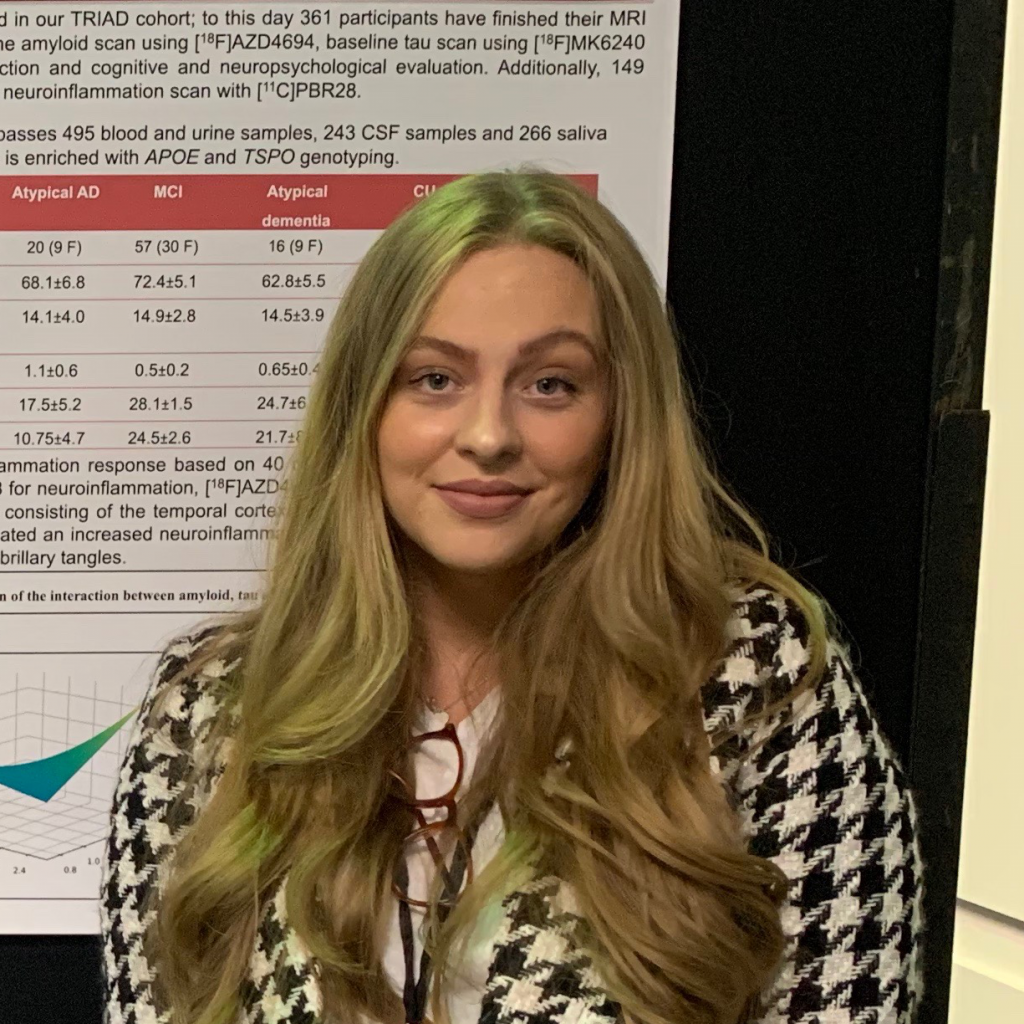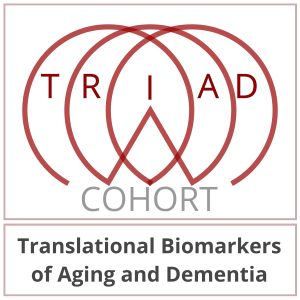Our research looks at the changes that happen in people’s brains that contribute to dementia. Our lab focuses its research on Alzheimer’s Disease, which is the most common form of dementia and usually starts with people having trouble with their memory and other types of dementia. We are continually growing a group of participants who assist us by participating in our research. We use new techniques to create images of the locations where proteins are building up inside the brain in different populations, including those with dementia and those without. This helps to understand the early stages of dementia to discover the details of how Alzheimer’s and related diseases begin and progress.
Our team includes highly qualified proffesionals, interacting with you during your participation, and working behind the scenes. You will directly interact with medical doctors (neurologists), nurses, neuropsychologists, research assistants and administrators. All the data gathered will be handled in a confidential manner by imaging analysis experts, computer scientists, and research students (undergraduate, Master’s & PhD). We are passionate and excited about this research and we would like to thank you for your interest and participation!

We are recruiting participants to become part of our TRIAD cohort, which is a longitudinal study (happening over time from a few months to a few years). We are looking for people who can commit to coming for multiple scans, including adults of all ages, those with or without a family history of dementia, those who feel there have been changes in their memory and those who don’t.

Contact Jenna Stevenson, research coordinator at 514‐761-6131 #6321 and you will undergo some basic questions over the phone to see if you are a good candidate for participating in the studies before inviting you to come in person to our site at the McGill Center for Studies in Aging.

Jenna Stevenson
Research Coordinator
For most participants the following steps will happen if you show interest in participating in one of our studies (some of the steps may not happen in the same order, and some people will have some tests but not all of them depending on the study – you will have to discuss your own participation with one of the members of our team):
Before participating in the study, all of these steps will be explained to you by one of the members of our team and you will be asked to sign a consent form which includes – in writing -the detailed information about the study.
Screening will include questions about your past and current health, your family history and any troubles you have with your memory. There will be a physical exam to test your neurological health such as your balance and walking. Short questionnaires related to memory may be done at this time or during the neuropsychological assessment.
You will be asked to provide samples of body fluids that we use to assess your current health and your genetics. For the blood test, a nurse will draw a sample of blood as you may have had done for previous blood tests at the doctor’s office. Saliva and urine will also be collected.

Neuropsychological Assessments
These are a series of tests looking at your cognition and memory. We may ask a close family member or friend to describe your day-to-day memory as well. These tests cover a lot of different areas of thinking and problem solving, and can take around 4 hours to complete, so they are completed over 1 or sometimes 2 visits. There is no preparation needed for these questionnaires, and the neuropsychologist will be guiding you through the different tests with proper instructions.
This is a procedure that is performed by a medical doctor which allows us to collect a sample of cerebral spinal fluid (CSF) (the fluid that surrounds your brain and spinal cord) to look for the types of proteins that we also look for during the PET scans (amyloid and tau). You will lie down on your side and the doctor will insert a needle in your back and remove a small amount of fluid. Most people find this procedure painless once the skin is frozen, but you may feel a poke. Most of the time people don’t feel any effects, but some people, especially those who are young, will have a headache after the procedure. The research nurse and the neurologist will go through every aspect of the procedure and the nurse will call you 24 hours after the procedure is done to make sure you are feeling well.
MRI Scan
This is an imaging scan of your head that looks at the structure and anatomy of your brain. It uses a large magnet, but no radiation, to make the images. Consequently, we will ask you if you have any permanent metal in your body (such as a clipped aneurysm or a pacemaker). The procedure is simple but if you have a problem with claustrophobia (being afraid of small spaces) you should let our team know. It is painless but can be quite loud so people usually wear earplugs and soft music is played in the background. The length of the scan can be different depending on which study you participate in but it is often around 45 to 60 minutes in total.

PET Scans
These are a type of brain scan, which uses a small dose of radioactive tracer, which sticks to certain proteins or molecules in the brain, and releases small radioactive signals, which can be read by the PET scanner. The tracer is injected through a small needle (like for a blood draw) and then a certain amount of time later, the images are taken in a machine similar to a CT scanner where only your head will be placed in the scanner while your body will be outside. The length of time of the scan can be different depending on which study you participate in.
We often ask participants to complete a few different PET studies to look at different factors implicated in aging such as amyloid protein, tau protein and markers of neuroinflammation. A member of our team will also explain the different scans proposed to you.
Our research occurs at 3 different sites:
McGill Centre for Studies in Aging (MCSA) is a victorian house situated on the grounds of the Douglas Hospital (Verdun). The house is located on the second driveway to the right when entering the Douglas Hospital grounds directly from Lasalle Boulevard.
Address: 6825 Boulevard LaSalle, Verdun
What is done here?
Crossroads is an annex house of the MCSA also located on the grounds of the Douglas Hospital (Verdun). The house is located on the first driveway to the right when entering the Douglas Hospital grounds directly from Lasalle Boulevard.
Address: 6775 Boulevard LaSalle, Verdun
What is done here?
Montreal Neurological Institute (also called the MNI or “The Neuro”)
Address: 3801 Rue Université, Montréal
What is done here?
To get the PET and MRI scans done you will arrive to the MNI and be met by a member of our research team who will guide you to the correct location and be with you through the process.

Translational Biomarkers in Aging and Dementia
(TRIAD)
6825 Bd LaSalle, Verdun, QC
H4H 1R3